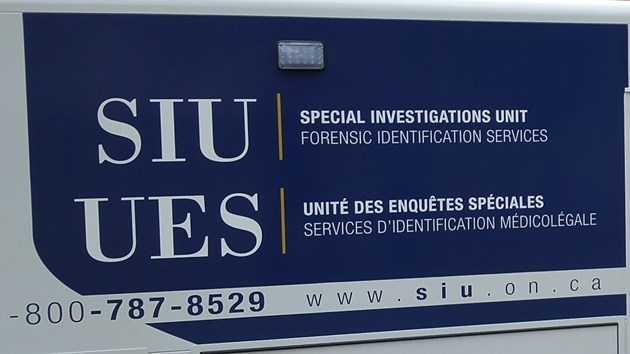THUNDER BAY — Ontario's Special Investigations Unit has determined there are no reasonable grounds to charge a Thunder Bay Police Service officer with a crime in connection with the death of a First Nations man eight years ago.
But in its review of the case, the police watchdog questions the officer's decision to cancel a call for service the evening before Arron Loon was found deceased in Junot Park.
In a decision released Monday, SIU director Joseph Martino suggested cancelling the call was "unreasonable" on its face, and that a case could be made the officer "acted with a wanton or reckless disregard" for Loon's life.
On Mar. 25, 2015, a passerby spotted Loon, 20, face down with vital signs absent, just off a walking path by the parking lot.
An autopsy determined the cause of death to be hypothermia, with an elevated blood ethanol concentration being a significant contributor.
The night before, a friend had called police asking for help, saying Loon was in the park and intoxicated, yelling, and wearing only a T-shirt and pants.
Officers were initially slated to go to the park, but were rerouted to deal with an impaired driving complaint.
An officer supervising in the communications centre later authorized cancellation of the request for service because there had been no further calls about Loon, and officers were busy on numerous other calls considered to be a higher priority.
Loon's death was subsequently taken up by the Office of the Independent Review Director as part of its wider review of the way TBPS investigated the deaths of First Nations people.
After the OIPRD released its Broken Trust report in December 2018, the matter was referred further to a team of specialists including the Chief Coroner of Ontario.
In January 2022, the coroner's office contacted the SIU expressing concern that Loon's death had not initially been reported to the SIU, and indicating that it appeared the matter did fall within the SIU's mandate.
In his Monday decision, SIU director Joseph Martino said Loon's death could not be traced in the evidence "with any confidence" to any criminally negligent conduct on the part of the police officer, leaving no basis for proceeding with charges.
However, he noted the investigation was stymied by the passage of time and the unavailability of certain evidence, including that from the principal witness – the person who first alerted police about Loon – who had passed away.
"Other witnesses had difficulty recalling the events in question," Martino wrote, adding that "Critically, investigative documents that had been compiled by TBPS in their initial investigation of the death had reportedly been largely purged pursuant to the police service's retention schedules."
The SIU director said that "On its face, it certainly appears that the decision to cancel the call for service was unreasonable. In fact, given the stakes involved, the health and life of the complainant, it is arguable that the decision transgressed the limits prescribed by the criminal law."
He stated that the official reason for cancellation was that there had been no further calls, "But that would hardly appear an extenuating circumstance – one might not expect any call-backs were hypothermia to set in, and the police were aware that the complainant's friends had left him in the park."
Martino said it remains unclear why the subject officer thought it appropriate to cancel the call as quickly as he did, and noted that the officer exercised his right not to speak to SIU investigators.
"What can be established with a level of certainty," he said, "is that the officer should have had access to the call information regarding [Loon's] condition and state of dress. On this record, a case can be made that the officer acted with a wanton or reckless disregard" for the man's life and safety.
Nonetheless, he decided that he can't reasonably conclude there's "a sufficient nexus" between any criminally negligent conduct and Loon's death.
Martino cited expert medical evidence provided to the SIU that found it was not medically or scientifically possible to establish how long Loon might have survived in the known circumstances, or to estimate his time of death.
This, he said, leaves open the possibility that he died before the call for service was cancelled, "the point at which any criminal negligence on the part of the subject officer would have crystalized."
